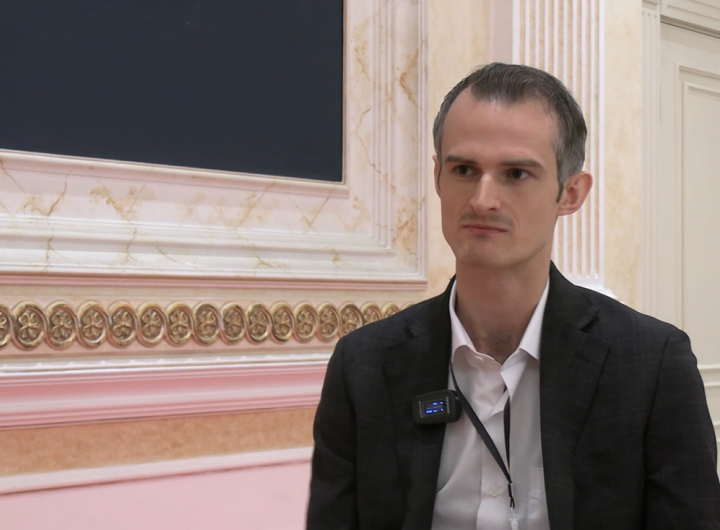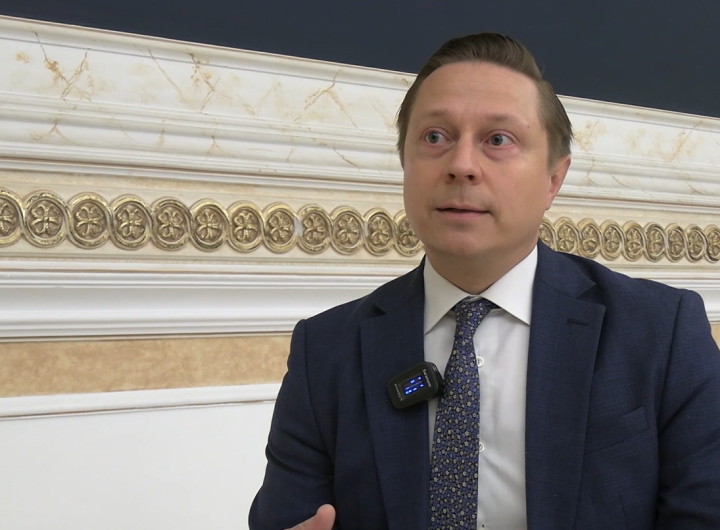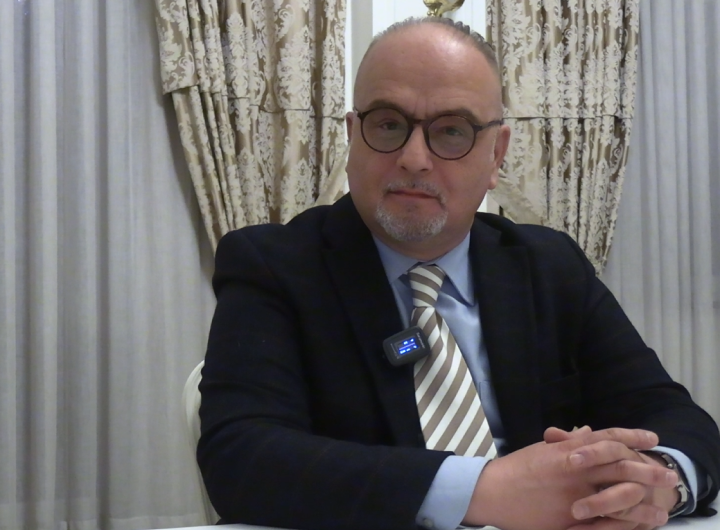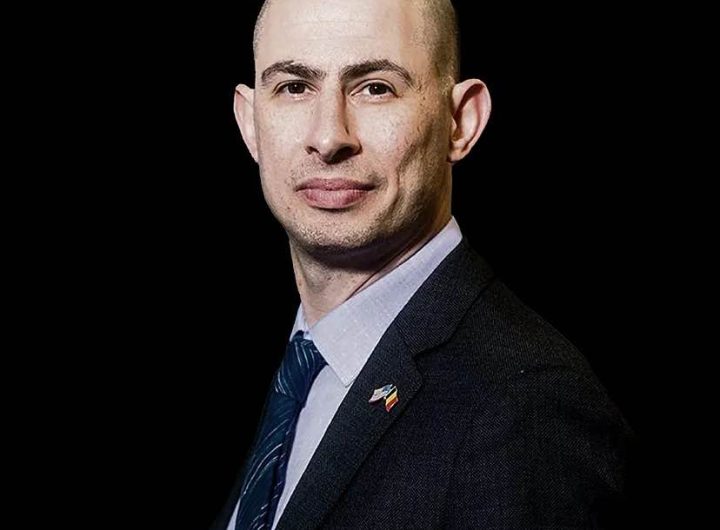
Nationalism is an element of prejudice against others as well as threats against others, as is the case of Russia against Ukraine.
This is what Serbian lawyer Vlatko Sekulovic thinks, adding that such an attitude simply has no justification.
“Nationalism is a sense of connection, but with an element of prejudice against others, in the sense of perceiving others as a threat, in the specific case of Russia against Ukraine,” Sekulovic says in an interview with The Geopost.
“I think that such an attitude simply has no justification, and that is why today we are talking about an unjustified aggression of the Russian Federation towards Ukraine,” he adds.
Sekulovic emphasizes that the Russians will continue the interests of Serbian nationalists.
“The interests of Serbian and Russian nationalists are at a coincidental stage, I would not exclude other nationalists on the territory of Europe, if their interests coincide with the Russians, the Russians will support them and vice versa,” emphasizes the lawyer from Belgrade.
In this interview, he also talked about the definition of nationalism and the concept of nationalism in the Balkans.
Full interview below:
TheGeopost: What do the terms nationalism and patriotism mean?
Nationalism is first of all related to the idea of nations, i.e. it is the misuse of the idea of nation, it tries to define the nation on the basis of two elements, one is the feeling of attachment to the nation, but that is not even a problem, and it is not a feeling that belongs exclusively to people who identify with nationalism, can be liberals or socialists, so that they have certain national feelings. However, what nationalists add to that national feeling is prejudice against other nations, i.e. peoples, primarily perceiving others, i.e. defining others as a threat to their own nation.
When those two elements come together, then we can talk about nationalism, and nationalism, essentially from nations as a group of cultural communities, is inevitably committed by conflicting groups that are sometimes condemned to some kind of conflict or to a state of frozen conflict. On the other hand, patriotism is first of all related to another concept, and that is to the concept of home, that is, so to speak, in the philosophical sense of a common house. We can organize that house in different ways, but that patriotism, which is based on respect for human rights and freedoms, is in essence the antithesis of nationalism, because patriotism first of all means loving one’s own homeland, loving one’s own country, but not with prejudice towards other countries, that other states are a threat to a certain state by their very existence. I think that these are the essential distinctions between nationalism and patriotism, and we are witnessing that numerous world leaders in modern times emphasize this difference, the closest to me is the definition given by the French president, Emmanuel Macron, that nationalism is essentially a betrayal of patriotism, i.e. a betrayal of all those values that make up one nation, which are above all respect for human dignity through that famous French slogan, “Liberté, égalité, fraternité”.
TheGeopost: How do you see Russian influence, its nationalism and the idea of influence in the Balkans?
Staying in this area for more than 30 years, we can distinguish two phases, one phase is the period of the 90s when the Russian Federation did not have nationalism as its dominant ideology, it was primarily oriented towards liberalism with all its flaws, but still, it was a period, so to speak, of relative freedom in the Russian Federation and a period when new institutions were built in terms of the democratization of Russian society, the development of the market economy, and the affirmation of human rights and freedom.
What we can witness is that since the 2000s, another process has been slowly starting, which has culminated in the last ten years, that is, nationalism has essentially taken that dominant position in the Russian Federation, at least within the framework of, let’s call it that, the political, cultural elites first of all, then the military in the Russian Federation.
And today we are facing the Russian Federation, which first of all defines nationalism as their attitude towards the Ukrainians is such that they simply do not recognize the existence of the Ukrainian people, the Ukrainian state, which they constantly perceive as a threat, which falls under what I previously stated that nationalism is a feeling of attachment, but with an element of prejudice towards others, in the sense of perceiving others as a threat, in the specific case of Ukraine towards Russia.
I think that such an attitude simply has no justification, and that is why today we are talking about an unjustified aggression of the Russian Federation against Ukraine.
TheGeopost: There is a lot of talk about the Russian world and the Serbian world, how much overlap do they have, and if so, is there a chance to separate them?
I think that nationalists everywhere recognize each other, even in their time the German nationalists organized into the National Socialist Party said that they had no choice but to support, for example, the French nationalists, until the moment their interests collided. So, for sure, at this stage, the interests of Serbian and Russian nationalists are in a phase of coincidence, I would not exclude other nationalists on the territory of Europe, if their interests coincide with Russian, Russian will support them and vice-versa, so I think that nationalisms are essentially in a symbiosis of feeding each other until the moment their interests collide. I would mention for example what happened in Italy recently, in Russia there were expectations that with the new government there would be a change of course in Italy due to the arrival of a right-wing coalition with certain elements of pushing the concept of the nation which is already beginning to look like some nationalism, however the opposite has happened, this government of Italy, it is still fully committed to the policy of NATO, the policy of the European Union towards Russia, this means that the interests of related political groups have diverged.
It can also happen that there is a divergence between the Russian and Serbian worlds as the nationalists define them, it is enough only, for example, for Russia to accept, for the sake of some agreement with the West, the independence of Kosovo, because it would suit them for the sake of recognizing the independence of those parts of Ukraine, which they are pleading for, starting with Crimea, etc., so it is a marriage of convenience.
The question is how long it will last, at the moment it is quite solid, they act in symbiosis, but it is certainly a big question how they will see it in the future, for the simple reason that one of the characteristics of nationalism, again quoting Macron, then leads the interests of only their own group, that is, about the interests of their own group, and they really don’t care about the interests of others, in that they are very cruel, and if the Russian Federation recognizes that it can achieve better interests as defined by them, they will not wait even an hour to get rid of the concept of the Serbian world.
TheGeopost: How do you see the concept of nationalism among citizens in the Balkans, will it increase?
I think that a lot depends on the processes taking place in the European Union, recently Gordon Brown presented a thesis that in essence liberalism is in decline and that its place is taken by nationalism, speaking at the global level and especially within the European Union. So the question is how that process will simply go, but what is certain, maybe not in a year, two or five, if that process continues, it will nominally create conflicting groups, which will call into question the survival of the European Union itself, and it is certain that it will lead to negative consequences in the area of the Balkans in terms of some new tensions.
So my impression is that it is necessary to fight constantly for the values that were won on the territory of Europe after the Second World War, that is, human rights and freedoms and democracy, that is a formula that is valid not only for the Balkan area, it is valid and for the area of Europe, and I think it is a constant and continuous struggle. Nationalism, using the words of Vaclav Havel, is a demon that is constantly present and that needs very little space to wake up and cause anger in the minds of many, and that anger then leads to conflicts, leads to suffering that has already been witnessed, as in the 90’s in the area of the Balkans, as well as during the First and Second World Wars in the area of Europe, and ultimately what we are witnessing today in the territory of Ukraine. /TheGeopost/.

 Election Integrity, Graham Jones: International Cooperation Needed Against Disinformation
Election Integrity, Graham Jones: International Cooperation Needed Against Disinformation  Russian Influence and Hybrid Operations, Pyysalo for The Geopost: Balkans Must Fight Disinformation
Russian Influence and Hybrid Operations, Pyysalo for The Geopost: Balkans Must Fight Disinformation  Student Protests, Videnovic: Russia Supports Vucic’s Government, China Seizes Every Corruption Opportunity in Serbia
Student Protests, Videnovic: Russia Supports Vucic’s Government, China Seizes Every Corruption Opportunity in Serbia  Olenik for The Geopost: The process of Vucic’s disempowering is underway in Serbia, it is time for Kosovo Serbs to separate politically from Belgrade
Olenik for The Geopost: The process of Vucic’s disempowering is underway in Serbia, it is time for Kosovo Serbs to separate politically from Belgrade  Lights for the Constitution
Lights for the Constitution  The Secret Strategies of the GRU and FSB in the Balkans, Mandic: Russia Always Poses a Danger (Part 2)
The Secret Strategies of the GRU and FSB in the Balkans, Mandic: Russia Always Poses a Danger (Part 2)